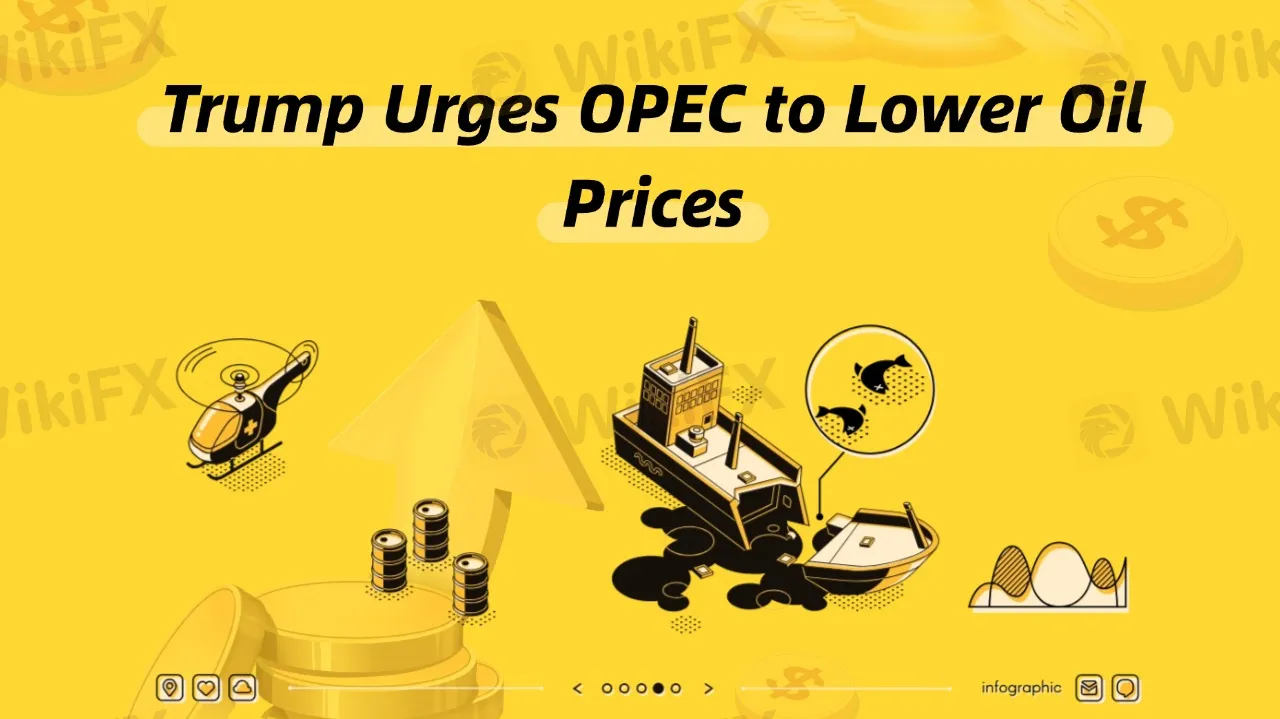Trump Urges OPEC to Lower Oil Prices
Abstract:As of January 17, the EIA's oil status report showed that crude oil inventories have decreased for the ninth consecutive week, while Trump has urged OPEC to reduce oil costs.

Against the backdrop of fluctuating global oil prices, Trump recently issued a strong call to the Organization of Petroleum Exporting Countries (OPEC) to “lower oil costs.” He stated plans to intervene in the global oil market on a large scale and specifically urged OPEC member countries, including Saudi Arabia, to take measures to reduce oil prices. Trump believes that lowering oil prices will put pressure on Russia, which could lead to the end of the Ukraine conflict. At the same time, he argued that falling oil prices would help alleviate global inflation pressures and create conditions for lowering interest rates. Trump explicitly stated, “As oil prices fall, I will demand an immediate reduction in interest rates, and global interest rates should also decrease.”
Trump's remarks not only exert pressure on OPEC countries but also directly challenge the Federal Reserve's interest rate decisions. He publicly stated that he understands interest rates better than Federal Reserve Chairman Jerome Powell and predicted he would have a conversation with Powell at an appropriate time.
His comments had an immediate impact on the international oil market, with US WTI crude prices briefly dropping by 1.4% and Brent crude declining by 1.2%.
How will OPEC respond?
In response to Trump's call, OPEC's reaction may not be straightforward. As a key global oil-producing group, OPEC members have significant influence over oil price setting and production regulation. However, Trump's intervention may put these countries in a position where they need to weigh complex political and economic factors. Whether OPEC countries will respond to Trump's request largely depends on the global oil market's supply and demand situation and each country's economic interests. If OPEC decides to increase production further, it may lower oil prices in the short term, but it could also impact the fiscal revenues of its member countries, particularly those heavily reliant on oil exports.
Furthermore, OPEC is not fully unified, as some members may prefer to maintain higher oil prices, while others may support increasing production to meet global demand. While Trump's call is clear, OPEC's decision-making process will likely continue to be influenced by complex geopolitical and economic factors. Therefore, whether Trump's request can directly alter OPEC's production decisions remains to be seen.
For investors, keeping a close eye on OPEC and the Trump administration's developments will be crucial in understanding the future direction of oil prices.

Read more

Broker Comparsion: FXTM vs AvaTrade
FXTM and AvaTrade are two well-established online brokers offering forex and CFD trading across global markets. Both enjoy strong reputations and high ratings on WikiFX—FXTM holds an AAA overall rating, while AvaTrade scores 9.49/10, indicating they’re regarded as reliable choices by the community. However, since brokers have great reputation in the industry, how do we know which one is more suitable for individuals to invest in? Today's article is about the comparison between FXTM and AvaTrade.

Pi Network: Scam Allegations Spark Heated Debate
A whistleblower report has surfaced, casting doubt on the legitimacy of Pi Network, alleging psychological manipulation, opaque operations, and potential financial exploitation. What is your take on this?

Webull Listed on Nasdaq Following SPAC Merger with SK Growth
Webull and SK Growth complete their business combination, with Webull now trading under the ticker “BULL.” App hits 50 million downloads worldwide.

UN Warns Asian Scam Operations are Spreading Worldwide
UN report reveals Asian scam operations expanding globally, targeting Africa, Latin America with cyberfraud, generating billions amid crackdowns.
WikiFX Broker
Latest News
Love, Investment & Lies: Online Date Turned into a RM103,000 Scam
Broker’s Promise Turns to Loss – Funds Disappear, No Compensation!
Broker Took 10% of User's Profits – New Way to Swindle You? Beware!
Pi Network: Scam Allegations Spark Heated Debate
Broker Comparsion: FXTM vs AvaTrade
Account Deleted, Funds Gone: A New Broker Tactic to Beware Of?
StoneX Subsidiary, Gain Global Markets Bermuda, Penalized for Trading Misconduct
El Salvador and U.S. Launch Cross-Border Crypto Regulatory Sandbox
The Instagram Promise That Stole RM33,000
Coinbase Launches Bitcoin Yield Fund for Institutional Investors
Rate Calc
